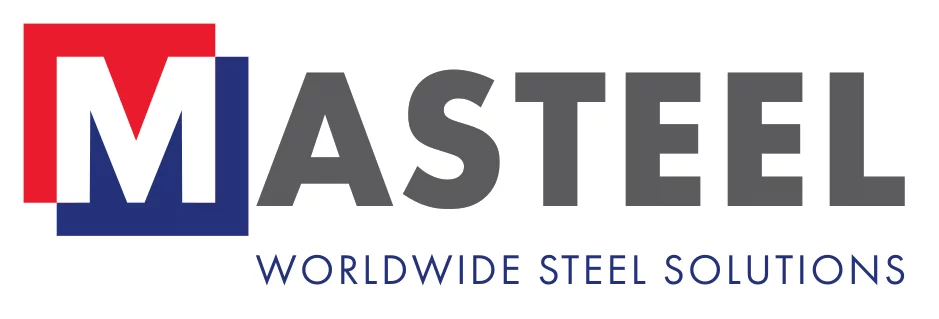Carbon steel is an iron-carbon alloy with a high carbon content worth up to 2.1% of the steel’s overall weight. Owing to its high carbon content, carbon steel has high tensile strength and is used in construction to manufacture buildings and bridges and other items such as fridges and washing machines. In this blog post, we will provide you with an overview of carbon steel and its applications and benefits.
Carbon Steel Applications
Carbon steel is highly versatile and therefore has a broad range of applications. Industries that use carbon steel include the gas, oil and petrochemical sectors, in which carbon steel has been implemented widely throughout.
Masteel supplies a range of steel products worldwide, enabling us to source and manufacture carbon steel for a wide range of market sectors. We have developed a specialisation in the fabrication of industrial boilers and low-pressure vessels for some of the world’s largest fossil fuel energy providers.
Carbon steels are often used in the following applications:
- Automotive Components
- Construction
- Cutting Tools
- Machinery
- Structural Shapes
- Train Tracks
- Welding
Did you know?
Carbon steel is one of the most significant steel classifications and makes up as much as 90% of steel manufactured worldwide. However, carbon steel can be broken down into five sub-categories.
- High-carbon steels: those with a carbon content of over 0.5%
- Medium-carbon steels: with a carbon content of 0.2% and 0.49%
- Low-carbon steels: those with a carbon content of 0.05% and 0.19%
- Extra-low-carbon steels: with between 0.015% and 0.05% carbon
- Ultra-low-carbon steels: less than 0.015% carbon
To qualify as carbon steel, these must all contain less than 0.6% copper, less than 0.6% silicon and less than 1.65% manganese. All of the above steels uniquely suit various applications and meet different specifications.
Carbon Steel Benefits
Although a carbon content of 2% might not sound like much, this still provides a number of critical benefits that are not available with other steels.
High Strength
The first advantage of this additional carbon content is the increased strength of the steel, which significantly reduces the possibility of the steel breaking under pressure.
Versatile
Carbon steel can be used in various applications due to its formability and high tensile strength. These applications range from automotive components to construction materials, tools and more.
Withstands Heat Treatment
Carbon steel can be heat-treated into a formable state, allowing it to be moulded into different shapes and plates. Aside from being formable, the steel still retains its high tensile strength. However, the steel’s surface layer will become susceptible to corrosion after the heat treatment, which includes oxidisation and weathering.
Carbon Steel Products from Masteel
Carbon steel products from Masteel can be supplied across the world with ASTM, ASME and EN specifications. We also provide them with a range of carbon steel grades, which are suitable for heat exchangers, industrial boilers and pressure vessels. These carbon steels are outstanding properties, including notch toughness with tensile strengths that range from 60-80 ksi to 70-90 ksi.
Other carbon steel products include hydrogen-induced cracking (HIC) resistant carbon steel plates. These are high in durability and have excellent performance properties that help to counteract problems relating to hydrogen and stress-related corrosion that occur in the petrochemical industry.For more information about our carbon steel products, why not get in touch with us today and see how we can help.
